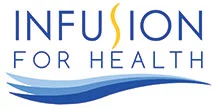This website uses cookies so that we can provide you with the best user experience possible. Cookie information is stored in your browser and performs functions such as recognising you when you return to our website and helping our team to understand which sections of the website you find most interesting and useful.
AVAILABLE TREATMENTS
• Leqvio
TREATMENT DURATION
15 minutes
FREQUENCY OF TREATMENT
First dose, next at 3 months and then every 6 months
HOW TO BOOK A TREATMENT
CONDITION AND TREATMENT OVERVIEW
High Cholesterol
High Cholesterol is a condition of having too much cholesterol circulating in your blood. While it can run in families, usually it’s caused by eating too much fatty food, not getting enough exercise, and carrying a few extra pounds. Smoking and drinking alcohol can make it worse. If you are struggling with managing your cholesterol levels, your doctor may recommend injections of Leqvio. We can help you maintain your treatment regimen and enjoy measurable results. Call Infusion for Health today to find out more about this treatment option.

AVAILABLE TREATMENTS
• Leqvio
TREATMENT DURATION
15 minutes
FREQUENCY OF TREATMENT
First dose, next at 3 months and then every 6 months
HOW TO BOOK A TREATMENT
What is cholesterol?
Cholesterol is a combination of fat and protein that exists in every cell in your body. Your body makes cholesterol to build cells. It is also used to make hormones, vitamin D, and enzymes and acids for digesting food. You can also ingest cholesterol when you eat egg yolks, meat, and dairy products.
Your body makes three kinds of cholesterol:
- HDL or high-density lipoproteins pick up other kinds of cholesterol around your body and carries it to the liver to remove it from your bloodstream.
- LDL or low-density lipoproteins are the majority of cholesterol in your system. It is used by your body for insulating nerve cells, digestion, cell repair and more. Too much of it, though, can build-up in your arteries and other health issues.
- VLDL or very low-density lipoproteins bring building block molecules to cells and create hormones. Like LDL cholesterol, too much VLDL can build up and block your arteries.
While you need all three kinds of cholesterol for healthy cells, too much is a health risk. Your heart must work harder and it can collect on artery walls and block blood flow (atherosclerosis). High cholesterol increases your risk of heart disease, high blood pressure, peripheral arterial disease or stroke.
The condition usually has no symptoms. They only way to know if you are at risk is through a blood test for cholesterol levels. You should get tested regularly, generally at least once every five years. If you are older and have a history of elevated cholesterol, annual tests are recommended.



